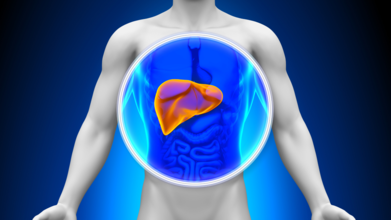- Health Conditions A-Z
- Health & Wellness
- Nutrition
- Fitness
- Health News
- Ayurveda
- Videos
- Medicine A-Z
- Parenting
- Web Stories
Being Delusional Can Actually Help You Achieve Your Goals—Here's What A Neuroscientist Says

Credit: Canva
Delusions are fixed, false beliefs that conflict with reality. Simply put, it is an inability to distinguish between what is real and what seems to be real. While delusions are symptoms of serious mental health conditions such as Schizophrenia and bipolar disorder, they can also help you achieve your goals.
Emily McDonald, a neuroscientist and brain coach, recently shared a video on social media wherein she gave three science-backed reasons to be delusional.
Being Delusional Boosts Dopamine Production
Being delusion triggers the production and release of dopamine. If you are realistic or limit yourself disrupts your dopamine system, which leads to a lack of motivation and action towards your pursuing goals. However, believing in the possibility of your dreams causes your brain to anticipate rewards. This boosts dopamine and motivates you into action.
Delusion Normalizes Your Goals
Being delusional about your goals also normalizes them in your brain. Empirical evidence shows that the human brain is designed to survive and not thrive. Since ancient times, brains have been keeping us safe and comfortable. However, being delusional about dreams makes them familiar to your brain. This leads to a shift in the nervous system and therfore, your reliability.
Delusion Shapes Your Real-Life Algorithms
The third reason is that your reality is like social media where your beliefs determine the algorithm. Your reality is based on your mindset, conditioning and beliefs. Start believing in the impossible and your system changes.
Beyond delusion, another thing that can help you achieve your goals is manifestation.
But How Does Manifestation Work?
Manifestation is not just a social media trend, there is a solid science behind it. When you manifest something, it is actually your Reticular Activating System (RAS) that is put to work. Now, one of the RAS’s most powerful functions is selective attention. Imagine you’re striving to land a job as a journalist. As you start focusing on this goal, your RAS kicks into gear. Suddenly, job opportunities begin to pop up on your social media feeds, conversations about media vacancies seem to happen around you, and relevant information for job tests appears more frequently. This isn’t the universe magically aligning things for you, it’s your brain actively filtering and spotlighting the information that matters most.
A classic example of RAS in action is the “cocktail party effect”—hearing your name across a noisy room. Even amidst the clamour, your brain zeroes in on that familiar word. Similarly, when you concentrate on a specific goal, your RAS tunes in to anything related to it, amplifying your chances of success.
Could A Easily Available Vitamin Reverse The Most Common Fatty Liver Disease?

Credits: Canva
Metabolic dysfunction-associated steatotic liver disease (MASLD), previously referred to as nonalcoholic fatty liver disease (NAFLD), has gone on undetected to become one of the most prevalent liver diseases on the planet. Currently, over 30% of the world's population is believed to be afflicted with MASLD, a condition that may present no symptoms until late stages. Largely caused by obesity and type 2 diabetes, MASLD is a silent epidemic that develops slowly and quietly until it leads to scarring, inflammation, or cirrhosis.
While common, effective treatments have been elusive. Lifestyle modifications like weight reduction, healthy eating, and physical exercise are still the mainstay of management. But today, a new find by a South Korean research team may revolutionize how we approach treatment—and it all hinges on a familiar vitamin most of us have heard of but don't often link to liver health: vitamin B3 or niacin.
What is miR-93 and Its Function in Liver Injury?
At the heart of this finding is microRNA-93 (miR-93), a tiny molecule found in the liver. Under normal circumstances, RNA molecules act to control how our genes function, but when they malfunction, they can cause disease.
Researchers discovered that MASLD patients and animal models of fatty liver disease contained unusually high levels of miR-93. Why care? Because miR-93 represses SIRT1, a gene that is necessary for the breakdown of fats in liver cells. When SIRT1 is inhibited, fats start to build up, leading to inflammation, fibrosis, and escalating liver damage.
In lab tests, mice that had been genetically modified to overexpress miR-93 suffered from advanced fatty liver disease. But when scientists used gene editors to knock down miR-93, the outcome was dramatic: fat accumulations decreased, insulin sensitivity increased, and markers of liver function normalized.
This discovery put the spotlight on miR-93 as a potent cause of MASLD—and a potential therapeutic target.
Which Vitamin Reverses Liver Damage?
After miR-93 was found, the logical question was straightforward yet important, could it be blocked? The research team tested 150 FDA-approved pharmaceuticals to determine whether any of them could reverse miR-93. The surprise winner was niacin (vitamin B3).
Niacin, which has been used for decades as a treatment for lowering cholesterol, suppressed miR-93 in this study and enhanced the activity of SIRT1. The outcome was restored normal lipid metabolism in the liver, decreased fat accumulation, and enhanced overall liver function.
Mice that received niacin experienced noteworthy decreases in miR-93 and distinct improvements in liver function markers. Since niacin is already deemed safe and readily available, scientists suspect that this finding may become human therapies much quicker than new drugs.
The potential is staggering. MASLD strikes almost a third of the world's population, but until today, no specific therapy has been developed. By taking a low-cost vitamin and adapting it, researchers may have identified a way to slow down—and even reverse—the disease.
Study leader Professor Jang Hyun Choi highlighted its importance:
This research clearly identifies the molecular cause of MASLD and shows the therapeutic potential for repurposing a previously approved vitamin molecule to control this pathway, which holds strong translational clinical application."
In simpler terms, this isn't merely a scholarly advancement. It's a move toward practical, real-world treatments.
What Is Metabolic Dysfunction-Associated Steatotic Liver Disease?
MASLD results when there is fat accumulation in the liver in individuals consuming little or no alcohol. It is normal to have some fat in the liver, but increased fat leads to inflammation and scarring. This can eventually advance to metabolic dysfunction-associated steatohepatitis (MASH), cirrhosis, or liver cancer.
Symptoms may not occur until the disease is well underway. Some individuals experience weakness, belly pain, unexplained weight loss, or jaundice. For others, the first hint comes when blood tests or imaging studies are done as part of a normal checkup.
Notably, MASLD is not alcohol-related—although alcohol consumption can cause the disease to dramatically worsen.
Can MASLD Be Reversed?
The good news is: yes, in most instances. If caught early, MASLD can usually be reversed with weight reduction, better diet, regular exercise, and close control of blood sugar and cholesterol levels. But after it develops into cirrhosis, the damage is largely irreversible.
This is why the discovery of vitamin B3 is so promising. By targeting the molecular cause of the disease—miR-93—it may be a means to treat MASLD more efficiently, even in those who have difficulties with lifestyle modification alone.
However, that the niacin already has FDA approval is a huge leg up. Rather than having to develop it from scratch, scientists can move forward based on decades of safety data, potentially accelerating its use in MASLD patients.
Senior Fall Deaths Have Tripled in 30 Years: This Everyday Medication Could Be the Reason

(Credit- Canva)
Deadly falls among seniors have nearly tripled in the last 30 years and experts say certain common prescription drugs may be to blame.
As you get older, many activities we took for granted, whether it was moving at a fast pace, good digestion and even our ability to tolerate heat, all of these and more become difficult. However, there has been an alarming rise in the number of elderly people who are having fatal falls.
The Centers of Disease Control and Prevention (CDC) states that 14 million elderly falls are reported every year and 37% of these falls result in medical treatment. What’s surprising is that fall death rate, that used to be 55.3 per 100,00 older adults in 2012 has become 78 per 100,000 older adults in 2021. The CDC attributes the rise of number to medicines that may increase fall risk or poor strength and balance, and this may hold more truth than you realize.
Some experts believe that a rise in a specific category of drugs, known as fall risk-increasing drugs (FRIDs), may be to blame for the increase in deadly falls among older adults. In a recently published paper in JAMA, public health expert Dr. Thomas Farley writes that lifestyle changes alone can't explain why fall-related deaths in seniors have tripled over the past 30 years, and he points to the growing use of these prescription medications.
What Are These Medications That Increase Fall Risk?
FRIDs are medications that can increase a person's risk of falling by causing side effects that affect their body and mind. These drugs can make you feel sleepy, dizzy, or unbalanced, which makes it much easier to lose your footing and fall. The most common and concerning FRIDs are those that act on the brain and nervous system, including
- Opioids (for pain)
- Benzodiazepines (for sleep and anxiety)
- Gabapentinoids (for nerve pain)
- Antidepressants
Can Medicine Really Increase Risk Of Falling?
To see how FRIDs affect elderly safety, a 2024 study published in the BMC geriatrics followed 2,157 healthy adults aged 70 and older for three years. At the start, researchers checked if the participants were taking any FRIDs. They then kept track of how many falls each person had over the three-year period, including those that caused an injury. They also looked at if people were taking just one FRID or multiple ones. The results showed a clear link between taking FRIDs and an increased number of falls.
Higher Risk with Just One Drug: Seniors taking at least one FRID were 13% more likely to fall, and 15% more likely to have a fall that resulted in an injury.
Risk Doubles with Multiple Drugs: The risk was much higher for those taking two or more FRIDs. They were 22% more likely to fall and an even more serious 33% more likely to have an injurious fall.
The study concluded that even among healthy older adults, taking these medications is linked to a higher risk of falling, which can lead to serious injuries.
How Can We Lower the Risk Of Fall-Related Deaths In The Elderly
In the paper, Dr. Thomas Farley recommends that doctors avoid prescribing many of these high-risk drugs to older adults. The medical community needs to make a larger, more organized effort to stop inappropriate and dangerous prescribing.
This includes doctors reviewing their patients' medications and using new technologies to identify those who are on FRIDs. By taking this problem seriously and making changes, experts believe that at least two-thirds of the more than 25,000 preventable fall deaths that happen each year can be avoided.
New Smart Pimple Patch Clears Acne In 7 Days, Ayurvedic Expert Shares Foods That Heal From Within

Credits: iStock
Waking up to a red, big pimple on your face can be an unpleasant shock that ruins your whole day. Now imagine substituting the ordinary routine of squeezing, covering it up, and waiting for weeks until it goes away with the tiny patch that eradicates the blemish in seven days. That's what scientists have done with the latest "smart" pimple patch — and it might revolutionize acne care entirely.
Dermatologists and researchers have been pursuing quicker, more potent treatments for breakouts for decades. Now, a breakthrough might revolutionize the way we approach breakouts.
Researchers have introduced a new microarray acne patch that doesn't only hide pimples—it effectively eliminates them within seven days. Aside from its acne-clearing potential, this intelligent patch also indicates the possibility of a future where technology like this can administer treatments for ailments far beyond the realm of skin care.
How Does The Smart Pimple Patch Work?
Pimple patches, or acne stickers, are not new. The small hydrocolloid-based bandages have been around for years and were intended to pull out excess oil and water from a pimple and protect it from outside bacteria. Some of them contain medications such as salicylic acid or tea tree oil to accelerate healing.
But there are limits to traditional patches. They primarily work on the outer layer of the skin, give only partial solution, and tend to migrate very easily, particularly at night. For individuals with intractable acne, they're more regarded as a "quick fix" rather than a genuine cure. This is where the new patch based on microarray technology differs.
The study, published in ACS Applied Materials & Interfaces, introduced a patch built on a microarray platform—tiny, spike-like structures designed to penetrate the skin’s outer layer and deliver active ingredients directly into pimples.
What distinguishes this patch from others is the design. Rather than smooth spikes that move or irritate skin, researchers employed arrowhead-shaped micro-spikes manufactured using 3D printing. This design enables the patch to "lock on" so that the ingredients in the patch designed to combat acne reach their destination.
The foundation of the patch is composed of hyaluronic acid, a skin care staple for hydration and repair. Within this base, the researchers added two groups of active ingredients:
Day 1 (Antibacterial phase): Salicylic acid and Cannabis sativa extract to destroy bacteria that cause acne and lower oil.
Day 2–7 (Anti-inflammatory phase): Niacinamide and chamomile extract to soothe redness, decrease lesions, and avoid scarring.
The microarray spikes dissolved into the skin in only 30–90 minutes without causing any irritation or residue.
An 81% decrease in acne lesions within three days and total pimple clearance on day seven. Sebum production also fell dramatically, tackling one of the root causes of acne.
Even better news, 95% of the participants were satisfied with the result, experiencing no pain, irritation, or scarring.
"Our research demonstrates the versatility of microarray patches as a platform for uses other than acne therapy, from skin diseases to obesity treatments and vaccine administration," says Kim.
Why Pimple Patches Became Popular?
Anybody who has ever awoken to a red, inflamed pimple can understand the dread it inspires. Old-school pimple patches—the small, sticker-like band-aids—became a quick fix. They usually soak up oil, minimize moisture, and serve as a protective barrier from picking and bacteria. Some have healing or antibacterial properties.
But although these patches facilitate speedy healing, they don't heal fast enough and frequently don't succeed against resistant, inflamed breakouts. The new study hopes to do better by transforming an ordinary acne sticker into a medical delivery system.
How To Naturally Get Acne-Free Skin Without a Pimple Patch?
Acne is more than just a cosmetic issue. Acne strikes approximately 50 million Americans each year, making it the most prevalent skin disorder in the world, states the American Academy of Dermatology. It may cause emotional anguish, poor self-esteem, and in extreme situations, depression.
Skin care innovations are important, but several experts emphasize that acne isn't skin-deep only. Shweta Shah, Celebrity Ayurvedic Nutritionist, tells how ancient wisdom perceives breakouts differently, "Acne in Ayurveda is not just a skin disease but an indicator of imbalance within. It is frequently associated with an overabundance of pitta dosha—the fire element of the body. When pitta grows perturbed, heat and inflammation increase, and toxins set up shop as pimples." Her treatment aims to cool, cleanse, and balance from the inside out.
Juices That Cool the Body
- Coriander + Amla Juice: Cools pitta, promotes skin repair.
- Cucumber + Mint Juice: Hydrates, inflammation-reducing.
- Aloe Vera + Coconut Water: Calms digestion, toxins flush.
Lifestyle Habits for Clear Skin
- Have warm water with trikatu (ginger, black pepper, long pepper) post-meals for digestion.
- Sleep early before 10 PM to permit natural skin repair.
- Steer clear of spicy, oily, fried food. Opt for cooling foods such as steamed vegetables, moong dal khichdi, and fruits such as pomegranate and papaya.
For local treatment, Shah recommends a Neem + Turmeric paste with rose water to address bacteria and inflammation.
Her recommendation points out a glaring fact: despite advancements in technology, healthy skin may start from within balance.
The intelligent acne patch is more than a cosmetic. It is a reflection of an emerging trend toward tailored, non-surgical medical treatments that may be administered through the skin both safely and effectively. For acne victims, it may mean quicker results without the nastier side effects of oral medications.
And if the same technology can deliver therapies for obesity, chronic skin diseases, or even vaccines, then why can't a simple patch could replace pills or injections.
Standard acne treatment tests patience, as changes are not always apparent for weeks or even months. For most people, that wait time spawns anxiety and frustration, perpetuating feelings of shame about appearance. Something that heals in days, however, provides more than a clearer complexion. It provides relief, confidence, and empowerment.
Mental health experts tend to point out that skin conditions such as acne are not merely skin-deep. Being able to observe concrete improvements within a week might help alleviate the emotional impact of acne, contributing to both mental health and self-esteem.
© 2024 Bennett, Coleman & Company Limited

